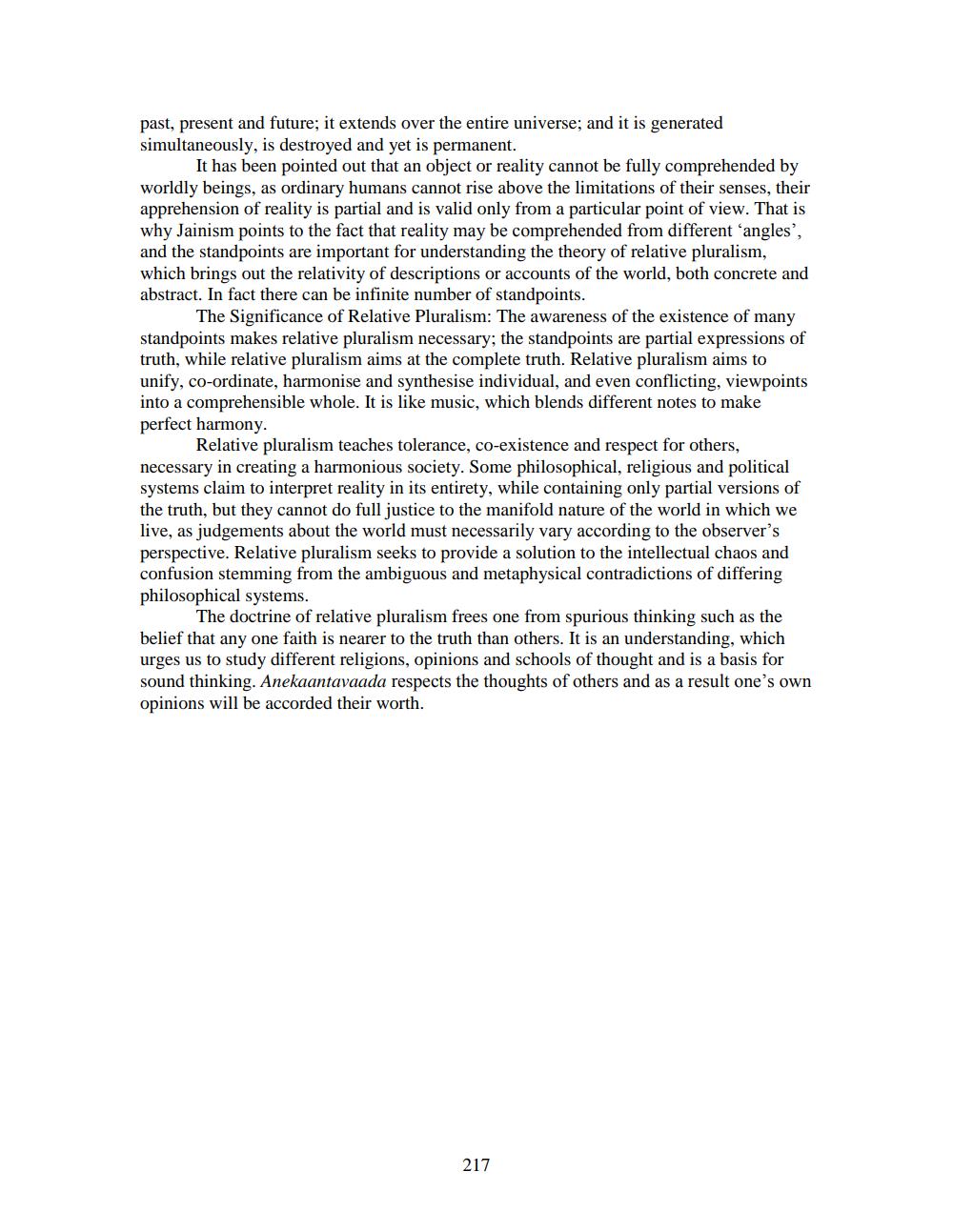________________
S.
past, present and future; it extends over the entire universe, and it is generated simultaneously, is destroyed and yet is permanent.
It has been pointed out that an object or reality cannot be fully comprehended by worldly beings, as ordinary humans cannot rise above the limitations of their senses, their apprehension of reality is partial and is valid only from a particular point of view. That is why Jainism points to the fact that reality may be comprehended from different 'angles', and the standpoints are important for understanding the theory of relative pluralism, which brings out the relativity of descriptions or accounts of the world, both concrete and abstract. In fact there can be infinite number of standpoints.
The Significance of Relative Pluralism: The awareness of the existence of many standpoints makes relative pluralism necessary; the standpoints are partial expressions of truth, while relative pluralism aims at the complete truth. Relative pluralism aims to unify, co-ordinate, harmonise and synthesise individual, and even conflicting, viewpoints into a comprehensible whole. It is like music, which blends different notes to make perfect harmony.
Relative pluralism teaches tolerance, co-existence and respect for others, necessary in creating a harmonious society. Some philosophical, religious and political systems claim to interpret reality in its entirety, while containing only partial versions of the truth, but they cannot do full justice to the manifold nature of the world in which we live, as judgements about the world must necessarily vary according to the observer's perspective. Relative pluralism seeks to provide a solution to the intellectual chaos and confusion stemming from the ambiguous and metaphysical contradictions of differing philosophical systems.
The doctrine of relative pluralism frees one from spurious thinking such as the belief that any one faith is nearer to the truth than others. It is an understanding, which urges us to study different religions, opinions and schools of thought and is a basis for sound thinking. Anekaantavaada respects the thoughts of others and as a result one's own opinions will be accorded their worth.
217




